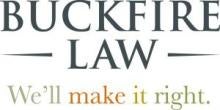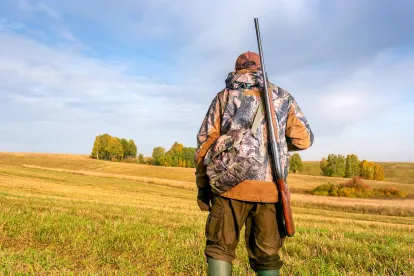Hunters are often the victims of serious injuries and even death, even while lawfully hunting and acting safely. Hunting season brings out a variety of hunters, from young to old, and it is often a family rite of passage passed down for generations. When a hunter is injured or killed due to another’s negligence or reckless conduct, it is possible to file a hunting accident lawsuit.
Statistics show that approximately one thousand people in the United States and Canada are accidentally shot by hunters every year in a hunting accident. Approximately ten percent, or one hundred accidents, result in a fatality. These numbers are consistent from year to year in both countries.
While hunting is a sport and also serves as a conservation role, there are common ways that both hunters and non-hunters are unintentionally injured and killed. The most frequent causes of hunting injuries include:
-
Unknowingly entering into the hunter’s line of fire
-
Victim was covered or hidden while the hunter was shooting at the target
-
The shooter failed to properly identify the target before firing
-
Accidental discharge of a gun or other weapon
-
Innocent bystanders accidentally shot by the hunter
-
Defective tree stands causing falls and serious injuries
Most state laws hold a negligent party in a hunting accident responsible for the injuries suffered by the hunting injury victim. In most hunting accident lawsuits, the victim must prove negligence or gross negligence against the offending hunter. This usually means the hunter failed to act safely or reasonably or was reckless in his use of the firearm.
In addition to direct hit shooting injuries, other injuries can give rise to a lawsuit. These include claims against a hunting club or property owner for injuries due to defects on the property. Also, claims for carbon monoxide poisoning resulting from defective heaters in a cabin, boat, or motorhome.
Settlements in hunting injury cases include both non-economic and economic damages. Non-economic damages include physical pain and suffering, mental anguish, fright and shock disability, and loss of enjoyment of life. Economic losses include lost earnings, medical bills, and other financial type losses that are documented by the victim.
In the case of a fatal injury, the family of the deceased victim can recover money damages for their loss with a wrongful death lawsuit. Compensation in a wrongful death lawsuit includes the decedent’s pain and suffering from injury until death, as well as and the loss of society and companionship by the surviving family members.
A family member who witnesses a serious injury of another family member may be able to file a bystander claim as well. This compensation claim provides settlement money resulting from the trauma of witnessing the injury. Many states require that the witnessing family member have some type of physical manifestation of an injury, such as crying spells, inability to sleep, or other types of physical injury.
For a wrongful death claim, the estate can also claim a loss of earnings and support, medical expenses, and funeral bills. These are in addition to the compensation demanded for the death of the loved one and associated losses.
Most settlements are paid by the insurance company for the negligent party. Hunting injury claims are often covered by the negligent person’s homeowner insurance policy. Also, many gun and hunting organizations provide liability insurance to hunters as part of their organization membership fees. Most people are unaware of this additional coverage and an experienced lawyer will track down all potential sources of compensation.




 />i
/>i

